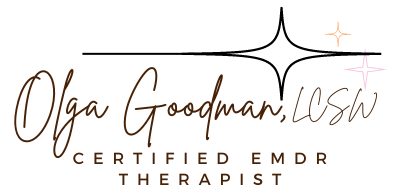Individual therapy for relationship issues in San Diego & El Cajon, CA. In-person & online.
Find your voice. Create stronger connections.
Your closest relationships—the ones that are supposed to make you feel safe and secure—are often your main source of anxiety and insecurity.
Instead of bringing a sense of joy and connection, relationships often leave you feeling even more alone. You are strongly influenced by other peoples’ feelings, walk on eggshells to avoid conflict, and become filled with guilt if you try to stand up for yourself or advocate for your needs.
Maybe you…
- long to be seen and cared for in your relationships, but every person you date leaves you feeling disappointed and blaming yourself for yet another “failed” connection.
- feel like you are constantly on probation in your close relationships, jumping through hoops to avoid losing your partner’s or family members’ affection. It’s exhausting!
- always seem to do “something wrong” that pushes your loved ones away or frustrates them.
- feel so hopeless and dissatisfied, yet, unable to take the steps to move forward.
When going through rough patches in your important relationships, you become so distracted that you are unable to concentrate on other things that matter to you, like friends or work. The anxiety is all-consuming, and the thought of losing someone or having someone upset with you feels intolerable. You keep beating yourself up for the issues you face in your relationships and feel horrible about yourself. Feeling sad or angry most of the time bleeds into your other relationships and keeps you isolated.
In addition to the immediate negative impacts of your relational issues, research shows that in the long term the quality of your relationships determines your ability to effectively deal with stress, pain perception, physical health, and even longevity. A Harvard study showed that strong supportive relationships are a key to overall happiness. This is why your work on building safe relationships is an investment with enormous pay-off.
Learn to build relationships that bring you happiness.
Find the love that feels like a safe haven.
Imagine not having a panic attack whenever your partner makes a dissatisfied grunt AND feeling deep in your body that you deserve to be loved, prioritized, and cared for just as you are.
Instead of getting stuck in the negative mental spirals after a conflict, you can learn to navigate difficult interpersonal situations with grace, avoiding feelings of shame and guilt. Individual therapy focused on addressing relationship issues will help you improve your mood, decrease anxiety, enhance your self-esteem, feel heard and taken seriously. You will start mastering your communication and boundary setting skills which will allow you to feel safe and finally get your needs met.
- We’ll begin by understanding how your personal history impacted your relational patterns, for instance, codependency, people pleasing, and avoidance. These new insights will help you build compassion for the younger versions of you who had to adopt these strategies to stay safe.
- You can develop a loving relationship with yourself to nurture your sense of being enough, strengthen your ability to protect yourself, and model for others how you want to be treated.
- You will gain practical skills to regulate your nervous system and manage your emotions, so your fear, guilt, and shame don’t stop you from creating healthy supportive relationships you deserve.
Therapy for relationship issues can help you…
- Effectively deal with conflict in relationships and repair in a way that makes you feel closer to your loved one.
- Set healthy limits in your relationships to avoid resentment.
- Recognize your relational triggers and learn to respond to them without escalating the situation.
- Own your needs in relationships and ask for those needs to be met.
- Identify and process relational trauma that informed a blueprint for adult relationships.
You don't have to keep settling for less than you deserve.
Frequently Asked Questions
Q: What is the best type of individual therapy for relationship issues?
We learn relational patterns early on in our lives in our relationships with our caregivers and then apply these patterns to our adult relationships when we grow up. That’s why attachment based therapies, like Emotionally Focused Individual Therapy (EFIT), work so well to increase safety in our relationships with ourselves and others. Trauma informed treatment modalities, like EMDR, are great at addressing unhelpful relational patterns stemming from abuse, chronic stress, or neglect. And of course skill-based treatments, like Dialectical Behavioral Therapy (DBT) and Cognitive Behavioral Therapy (CBT), can help us develop confidence and learn concrete ways to improve our interactions with others.
Q: Do I have to be in a relationship to benefit from therapy for relationship issues?
Absolutely not. You are always in a relationship with yourself, and you have your relationship with your therapist to work with. Using these two relationships is a great way to start increasing awareness, building a secure attachment, developing assertiveness skills, as well as learning to express emotions and needs. So when you meet someone special, you will have the knowledge and skills to successfully navigate all the intricacies and triggers of a romantic relationship.
Q: How is individual therapy for relationship issues different from couples therapy?
Individual therapy for relationship issues focuses on one person’s thoughts, feelings, and behaviors within their relationships. The therapist helps the individual explore how their own attachment issues, past experiences, and communication style affect their connections with others. One of the main goals of this type of therapy is to empower the person to make positive changes that will help build safe relationships, whether by improving self-awareness, setting boundaries, or addressing unresolved personal issues.
Couples therapy, on the other hand, involves both partners working together with a therapist. It focuses on the relationship as a whole, addressing dynamics between both partners to identify patterns, improve communication, and resolve conflicts. The therapist serves as a mediator, helping both partners understand each other’s perspectives and develop healthier interaction patterns. Therapy may involve joint exercises to improve communication or rebuild trust.

